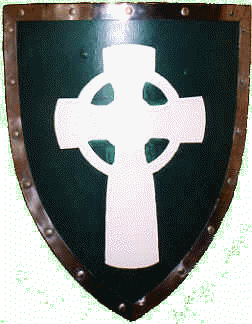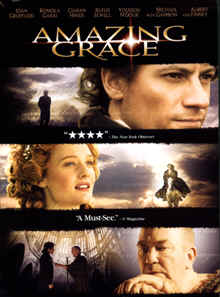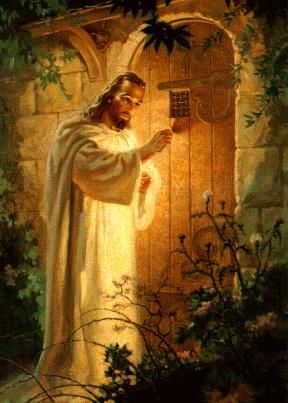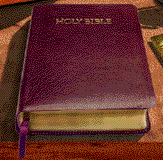
“Praise the LORD! It is good to sing a psalm of sweet praise to our God. It is fitting and right to do so.”
-Psalm 147:1
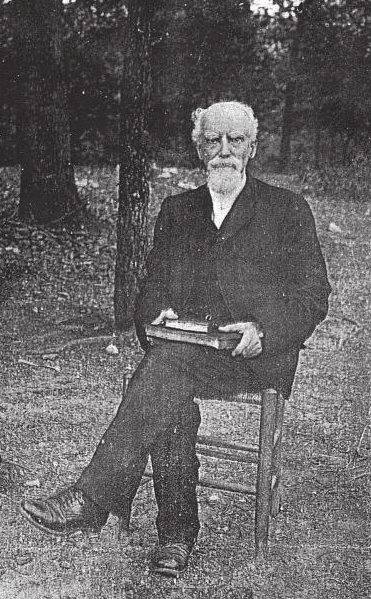
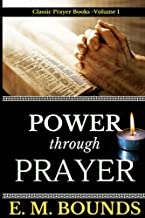
“Men are God’s method.
The Church is looking for better methods;
God is looking for better men.”




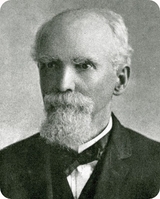
Book Review: Power Through Prayer by E.M. Bounds
“Edward McKendree Bounds (1835-1913), was a Methodist Pastor in Missouri when the Civil War began. Missouri was a State with a highly divided population: half pro-Union, half for the Confederacy, when the Union Army took control of the State.
One of Bounds’ brothers had already joined the Union Army. As a Pastor, Bounds was not interested in taking sides, but the North instituted a policy of commandeering Churches for military use that had southern sympathizers as members.
When the Union Army confiscated Bounds’ Church (that he himself had helped to build) and Bounds protested, he was arrested and interred in a Union Prisoner of War Camp for Confederate soldiers. In prison for the War’s duration, Bounds became a Chaplain for the Confederate prisoners.
After the war, and his eventual retirement from the ministry, E.M. Bounds prayed four hours each morning before 7a.m., and then worked on the writing of his eleven books, nine of which were on prayer. He did not write them for money; in fact, only two of them were even published before his death.
Bounds’ books motivate you to want to pray. When I first obtained them, I read them over and over. These days I am able to listen to several of them in AudioBook format. I play them in the car at least once a year.
As a new Christian of 19 and 20 years old, they inspired me to begin devoting an hour a day to prayer. This ministry would not have existed without the influence of E.M. Bounds.”
-Lay Monk S.G. Preston
E.M. Bounds Quotes: "Power Through Prayer"



“What the Church needs today is not more machinery or better, not new organizations or more and novel methods, but men whom the Holy Spirit can use — men of prayer, men mighty in prayer.
The Holy Spirit does not flow through methods, but through men.
He does not rest upon machinery, but upon men.
He does not anoint plans, but men — men of prayer.”
__________
“God’s revelation does not need the light of human genius, the polish and strength of human culture, the brilliancy of human thought, the force of human brains to adorn or enforce it; but it does demand the simplicity, the docility, humility, and faith of a child’s heart.”
__________
“Preaching never edifies a prayerless soul.”
__________
“Paul lived on his knees, that the Ephesian Church might measure the heights, breadths, and depths of an unmeasurable saintliness, and “be filled with all the fullness of God.”
__________
“The praying which makes a prayerful ministry is not a little praying put in as we put flavor to give it a pleasant smack, but the praying must be in the body, and form the blood and bones.
Prayer is no petty duty, put into a corner; no piecemeal performance made out of the fragments of time which have been snatched from business and other engagements of life; but it means that the best of our time, the heart of our time and strength must be given.”
__________
“God wants elect men — men out of whom self and the world have gone by a severe crucifixion, by a bankruptcy which has so totally ruined self and the world that there is neither hope nor desire of recovery; men who by this insolvency and crucifixion have turned toward God perfect hearts.” __________
We have lost preaching power and the pungent conviction for sin.
We have also lost the rich experience, the elevated Christian character, and the divine authority over consciences and lives that always results from genuine preaching.”
__________
“It is not great talents nor great learning nor great preachers that God needs, but men great in holiness, great in faith, great in love, great in fidelity, great for God — men always preaching by holy sermons in the pulpit, by holy lives out of it.”
__________
“There is no real prayer without devotion, no devotion without prayer.
The preacher must be surrendered to God in the holiest devotion.
He is not a professional man, his ministry is not a profession; it is a divine institution, a divine devotion.
He is devoted to God.
His aim, aspirations, ambition are for God and to God, and to such prayer is as essential as food is to life.”
__________
“Talking to men for God is a great thing, but talking to God for men is greater still.
He will never talk well and with real success to men for God who has not learned well how to talk to God for men.”
__________
“The men who have done the most for God in this world have been early on their knees.
He who fritters away the early morning, its opportunity and freshness, in other pursuits than seeking God will make poor headway seeking him the rest of the day.”














Deliberation Necessary
to Largest Results from Prayer
“This perpetual hurry of busibness and company ruins me in soul if not in body. More solitude and earlier hours!
I suspect I have been allotting habitually too little time to religious exercises, as private devotions and religious meditation.
I had better allot two hours or an hour and a half daily. I have been keeping too late hours, and hence have had but a hurried half hour in a morning to myself.
Surely the experience of all good men confirms the proposition that without a due measure of private devotions the soul will grow lean.
But all may be done through prayer — almighty prayer, I am ready to say — and why not? For that it is almighty is only through the gracious ordination of the God of love and truth.
O then, pray, pray, pray!”
-William Wilberforce
______________________________________________
Our devotions are not measured by the clock, but time is of their essence.
The ability to wait and stay and press belongs essentially to our communion with God. Hurry, everywhere unseemly and damaging, is so to an alarming extent in the great business of communion with God.
Short devotions are the bane of deep piety. Calmness, grasp, strength, are never the companions of hurry.
Short devotions deplete spiritual vigor, arrest spiritual progress, sap spiritual foundations, blight the root and bloom of spiritual life.
They are the prolific source of backsliding, the sure indication of a superficial piety; they deceive, blight, rot the seed, and impoverish the soil.
It is true that Bible prayers in word and print are short, but the praying men of the Bible were with God through many a sweet and holy wrestling hour.
They won by few words but long waiting. The prayers Moses records may be short, but Moses prayed to God with fasting and mighty crying forty days and nights.
The statement of Elijah’s praying may be condensed to a few brief paragraphs, but doubtless Elijah, who when “praying he prayed,” spent many hours of fiery struggle and lofty communion with God before he could, with assured boldness, say to Ahab,
“There shall not be dew nor rain these years, but according to my word.”
The verbal brief of Paul’s prayers is short, but Paul “prayed night and day exceedingly.”
The “Lord’s Prayer” is a divine epitome for infant lips, but the man Christ Jesus prayed many an all-night ere his work was done; and his all-night and long-sustained devotions gave to his work its finish and perfection, and to his character the fullness and glory of his divinity.
Spiritual work is taxing work, and men are loathe to do it.
Praying, true praying, costs an outlay of serious attention and of time, which flesh and blood do not relish.
Few persons are made of such strong fiber that they will make a costly outlay when surface work will pass as well in the market.
We can habituate ourselves to our beggarly praying until it looks well to us, at least it keeps up a decent form and quiets conscience — the deadliest of opiates!
We can slight our praying, and not realize the peril till the foundations are gone. Hurried devotions make weak faith, feeble convictions, questionable piety.
To be little with God is to be little for God. To cut short the praying makes the whole religious character short, scrimp, stingy, and slovenly.
It takes good time for the full flow of God into the spirit. Short devotions cut the pipe of God’s full flow. It takes time in the secret places to get the full revelation of God. Little time and hurry mar the picture.
Henry Martyn laments that “want of private devotional reading and shortness of prayer through incessant sermon-making had produced much strangeness between God and his soul.”
He judged that he had dedicated too much time to public ministrations and too little to private communion with God.
He was much impressed to set apart times for fasting and to devote times for solemn prayer. Resulting from this he records: “Was assisted this morning to pray for two hours.”
Said William Wilberforce, the peer of kings: “I must secure more time for private devotions. I have been living far too public for me. The shortening of private devotions starves the soul; it grows lean and faint. I have been keeping too late hours.”
Of a failure in Parliament he says: “Let me record my grief and shame, and all, probably, from private devotions having been contracted, and so God let me stumble.” More solitude and earlier hours was his remedy.
More time and early hours for prayer would act like magic to revive and invigorate many a decayed spiritual life.
More time and early hours for prayer would be manifest in holy living. A holy life would not be so rare or so difficult a thing if our devotions were not so short and hurried.
A Christly temper in its sweet and passionless fragrance would not be so alien and hopeless a heritage if our prayer-room stay were lengthened and intensified.
We live shabbily because we pray meanly. Plenty of time to feast in our prayer-rooms will bring marrow and fatness to our lives.
Our ability to stay with God in our prayer-room measures our ability to stay with God out of the prayer-room.
Hasty prayer-room visits are deceptive, defaulting. We are not only deluded by them, but we are losers by them in many ways and in many rich legacies.
Tarrying in the prayer-room instructs and wins.
We are taught by it, and the greatest victories are often the results of great waiting — waiting till words and plans are exhausted, and silent and patient waiting gains the crown.
Jesus Christ asks with an affronted emphasis, “Shall not God avenge his own elect which cry day and night unto him?”
To pray is the greatest thing we can do: and to do it well there must be calmness, time, and deliberation; otherwise it is degraded into the littlest and meanest of things.
True praying has the largest results for good; and poor praying, the least. We cannot do too much of real praying; we cannot do too little of the sham. We must learn anew the worth of prayer, enter anew the school of prayer.
There is nothing which it takes more time to learn.
And if we would learn the wondrous art, we must not give a fragment here and there — “A little talk with Jesus,” as the tiny saintlets sing — but we must demand and hold with iron grasp the best hours of the day for God and prayer, or there will be no praying worth the name.
This, however, is not a day of prayer. Few men there are who pray. Prayer is defamed by preacher and priest. In these days of hurry and bustle, of electricity and steam, men will not take time to pray.
Preachers there are who “say prayers” as a part of their program, on regular or state occasions; but who “stirs himself up to take hold upon God?”
Who prays as Jacob prayed — till he is crowned as a prevailing, princely intercessor? Who prays as Elijah prayed — till all the locked-up forces of nature were unsealed and a famine-stricken land bloomed as the garden of God?
Who prayed as Jesus Christ prayed, as out upon the mountain he “continued all night in prayer to God?”
The apostles “gave themselves to prayer” — the most difficult thing to get men or even the preachers to do. Laymen there are who will give their money — some of them in rich abundance — but they will not “give themselves” to prayer, without which their money is but a curse.
There are plenty of preachers who will preach and deliver great and eloquent addresses on the need of revival and the spread of the kingdom of God, but not many there are who will do that without which all preaching and organizing are worse than vain — pray.
It is out of date, almost a lost art, and the greatest benefactor this age could have is the man who will bring the preachers and the Church back to prayer.

Much Time Should Be Given to Prayer
“The great masters and teachers in Christian doctrine have always found in prayer their highest source of illumination.
Not to go beyond the limits of the English Church, it is recorded of Bishop Andrews that he spent five hours daily on his knees.
The greatest practical resolves that have enriched and beautified human life in Christian times have been arrived at in prayer.”
-Canon Liddon
__________________________________________
While many private prayers, in the nature of things, must be short; while public prayers, as a rule, ought to be short and condensed; while there is ample room for and value put on public prayer — yet in our private communions with God time is a feature essential to its value.
Much time spent with God is the secret of all successful praying. Prayer which is felt as a mighty force is the mediate or immediate product of much time spent with God. Our short prayers owe their point and efficiency to the long ones that have preceded them.
The short prevailing prayer cannot be prayed by one who has not prevailed with God in a mightier struggle of long continuance.
Jacob’s victory of faith could not have been gained without that all-night wrestling. God’s acquaintance is not made by pop calls. God does not bestow his gifts on the casual or hasty comers and goers.
Much time with God alone is the secret of knowing him and of influence with him. He yields to the persistency of a faith that knows him.
He bestows his richest gifts upon those who declare their desire for and appreciation of those gifts by the constancy as well as earnestness of their importunity.
Christ, who in this as well as other things is our Example, spent many whole nights in prayer. His custom was to pray much. He had his habitual place to pray. Many long seasons of praying make up his history and character.
Paul prayed day and night. It took time from very important interests for Daniel to pray three times a day. David’s morning, noon, and night praying were doubtless on many occasions very protracted.
While we have no specific account of the time these Bible saints spent in prayer, yet the indications are that they consumed much time in prayer, and on some occasions long seasons of praying was their custom.
We would not have any think that the value of their prayers is to be measured by the clock, but our purpose is to impress on our minds the necessity of being much alone with God; and that if this feature has not been produced by our faith, then our faith is of a feeble and surface type.
The men who have most fully illustrated Christ in their character, and have most powerfully affected the world for him, have been men who spent so much time with God as to make it a notable feature of their lives.
Charles Simeon devoted the hours from four till eight in the morning to God. Mr. Wesley spent two hours daily in prayer. He began at four in the morning. Of him, one who knew him well wrote: “He thought prayer to be more his business than anything else, and I have seen him come out of his prayer-room with a serenity of face next to shining.”
John Fletcher stained the walls of his room by the breath of his prayers. Sometimes he would pray all night; always, frequently, and with great earnestness. His whole life was a life of prayer. “I would not rise from my seat,” he said, “without lifting my heart to God.” His greeting to a friend was always: “Do I meet you praying?”
Luther said: “If I fail to spend two hours in prayer each morning, the devil gets the victory through the day. I have so much business I cannot get on without spending three hours daily in prayer.”
He had a motto: “He that has prayed well has studied well.”
Archbishop Leighton was so much alone with God that he seemed to be in a perpetual meditation. “Prayer and praise were his business and his pleasure,” says his biographer.
Bishop Ken was so much with God that his soul was said to be God-enamored. He was with God before the clock struck three every morning.
Bishop Asbury said: “I propose to rise at four o’clock as often as I can and spend two hours in prayer and meditation.”
Samuel Rutherford, the fragrance of whose piety is still rich, rose at three in the morning to meet God in prayer.
Joseph Alleine arose at four o’clock for his business of praying till eight. If he heard other tradesmen plying their business before he was up, he would exclaim: “O how this shames me! Does not my Master deserve more than theirs?”
He who has learned this trade well draws at will, on sight, and with acceptance of heaven’s unfailing bank.
One of the holiest and among the most gifted of Scotch preachers says: “I ought to spend the best hours in communion with God. It is my noblest and most fruitful employment, and is not to be thrust into a corner.
The morning hours, from six to eight, are the most uninterrupted and should be thus employed. After tea is my best hour, and that should be solemnly dedicated to God.
I ought not to give up the good old habit of prayer before going to bed; but guard must be kept against sleep. When I awake in the night, I ought to rise and pray. A little time after breakfast might be given to intercession.” This was the praying plan of Robert McCheyne.
The memorable Methodist band in their praying shame us. “From four to five in the morning, private prayer; from five to six in the evening, private prayer.”
John Welch, the holy and wonderful Scotch preacher, thought the day ill spent if he did not spend eight or ten hours in prayer.
He kept a plaid that he might wrap himself when he arose to pray at night. His wife would complain when she found him lying on the ground weeping.
He would reply: “O woman, I have the souls of three thousand to answer for, and I know not how it is with many of them!”

Men of Prayer Needed
“Study universal holiness of life. Your whole usefulness depends on this, for your sermons last but an hour or two; your life preaches all the week.
If Satan can only make a covetous minister a lover of praise, of pleasure, of good eating, he has ruined your ministry.
Give yourself to prayer, and get your texts, your thoughts, your words from God. Luther spent his best three hours in prayer.”
-Robert Murray McCheyne

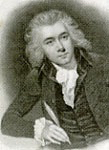
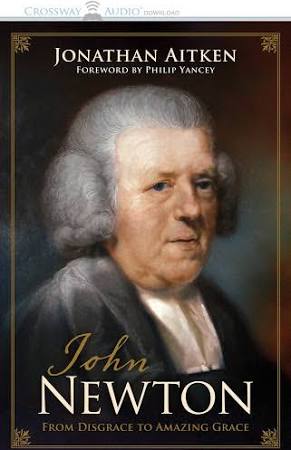





























pHiLippiANS 4:8 / SAyiNGS Of tHE dESERt fatHERS (AbbA ARSENiuS):
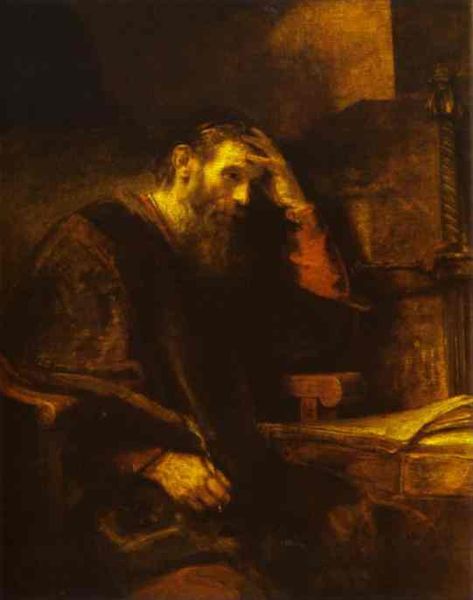

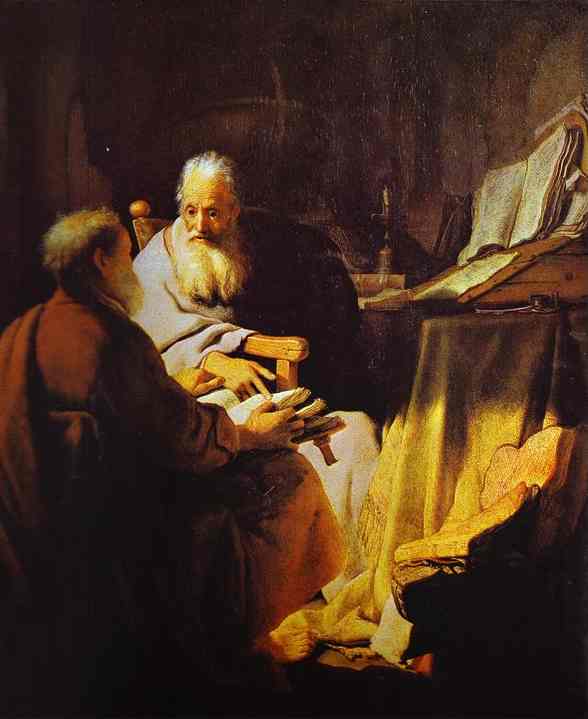
The Apostle Paul, Writing in the Letter to the Philippians:
“Finally, brethren, whatsoever things are true, whatsoever things are honest,
whatsoever things are just, whatsoever things are pure,
whatsoever things are lovely, whatsoever things are of good report;
if there be any virtue, and if there be any praise,
think on these things.”
-Philippians 4:8
“Abba Arsenius was approached by one of the Brother monks who sought a word of teaching from the older man.
Abba Arsenius told him, ‘With all your might, strive to bring your inner thoughts into accordance with God,
and you will overcome your exterior passions.'”
-Sayings of the Desert Fathers
__________________________________________
“…think on these things.”
-Philippians 4:8

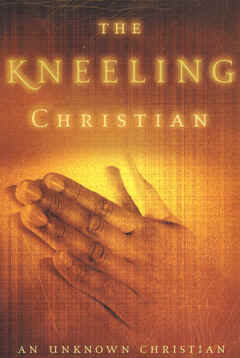
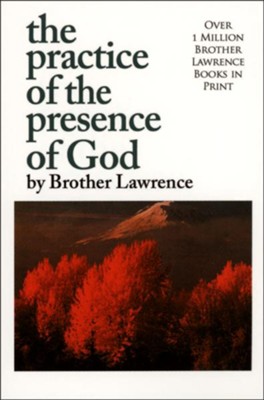

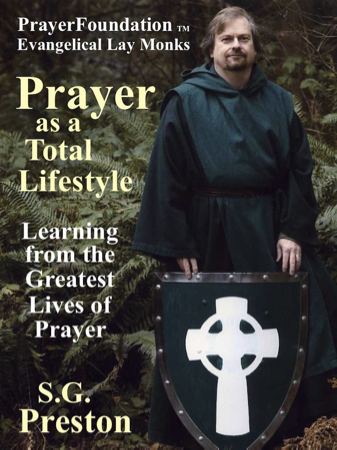
This Website: PrayerFoundation Evangelical Lay Monks ™ Built by: S.G. Preston Ministries ™
Copyright © 1999-2024 S.G. Preston. All Rights Reserved.
Photos & Text Copyright © 1999-2024 S.G. Preston. All Rights Reserved.
